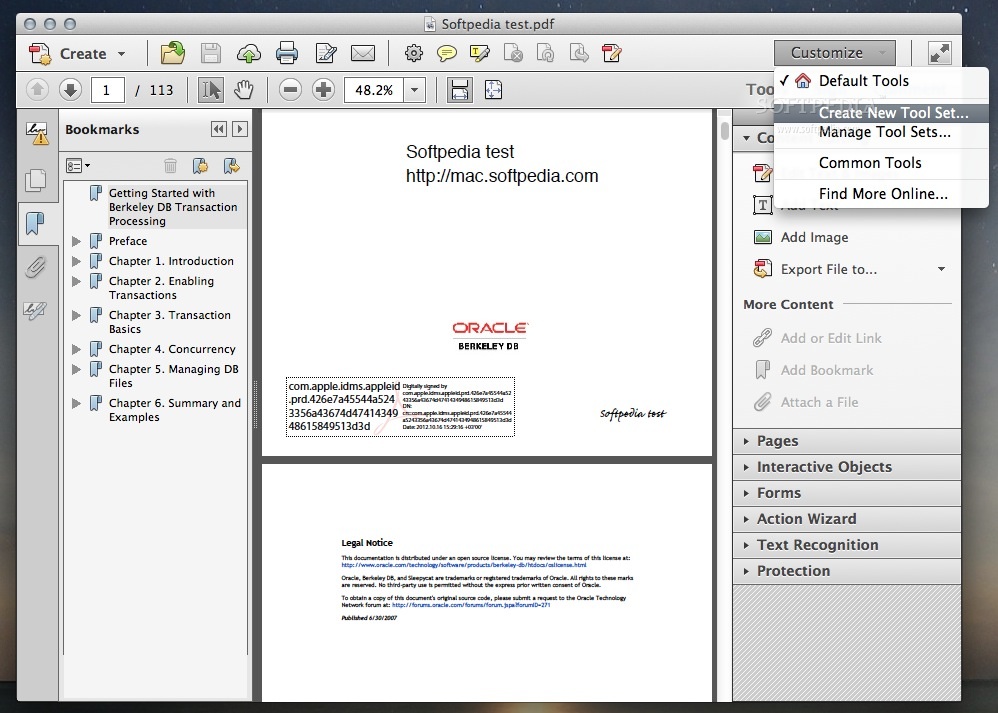-
Gallery of Images:

-
If one wishes to survive, either as an individual or even as a nation, one must conform to, and learn to utilize, instrumental reason. Thought and philosophy aids and abets this order where it seeks merely to mirror or 'objectively' reflect that reality. Max Horkheimers Critique of Instrumental Reason and the Domination of Nature October 17, 2011 1 Comment As the founder of the Frankfurt school in the 1930s, Max Horkheimers work set a formalised foundation for the previously undefined philosophical area of Critical Theory (with capitals). A prominent component (particularly in Dialectic) of the critique of instrumental reason is a critique of formalistic rationality, which evokes the criticism of the Cartesian mathematical method in Traditional and Critical Theory. On the face of it, one might question the. Instrumental reason functions to foreclose access to a deeper understanding of social structural and psychological conditions that exacerbate exploitation. As such, the critique of instrumental reason remained a core component of critical theory as a form of critique. In order to comprehend Horkheimers notion and critique of instrumental reason it is of importance that coherent understandings of the central ideas from The Eclipse of Reason are elucidated. About Critique of Instrumental Reason. These essays, written between 1949 and 1967, focus on a single theme: the triumph in the twentieth century of the statebureaucratic apparatus and instrumental reason and the concomitant liquidation of the individual and the basic social institutions and relationships associated with the individual. These essays, written between 1949 and 1967, focus on a single theme: the triumph in the twentieth century of the statebureaucratic apparatus and 'instrumental reason' and the concomitant liquidation of the individual and the basic social institutions and relationships associated with the individual. The dialectical thesis evokes a double take: rationality leads to freedom which process eventually restricts freedom. But for those familiar with the blend of Freud, Marx and Hegel characteristics of the Frankfurt School, Horkheimer's conclusions are not a shock. Whether as partner in marriage. Theoretical reason: reasons cognitive role and limitations. The first half of the Critique of Pure Reason argues that we can only obtain substantive knowledge of the world via sensibility and understanding. Very roughly, our capacities of sense experience and concept formation cooperate so that we can form empirical judgments. Critique of Instrumental Reason. These essays, written between 1949 and 1967, focus on a single theme: the triumph in the twentieth century of the statebureaucratic apparatus and 'instrumental reason' and the concomitant liquidation of the individual and the basic social institutions and relationships associated with the individual. Before this study can begin it must be stated how the critique of instrumental reason is related to the critique of instrumental legitimacy. too eschatological or simply more concerned with aesthetic reason than the political realities of power and contingency. and it must also be made clearer what is meant by instrumental legitimacy in this. Throughout Critique of Instrumental Reason, Horkheimer steps out from Theodor Adorno's shadow and reveals questions and criticisms that are not only relevant but also practical in contemporary contexts. COMMUNICATIVE ART THROUGH A CRITIQUE OF INSTRUMENTAL REASON SUSS I PORSBORG CONLIN 2004# Only the wearer knows where the shoe pinches (Ancient Greek adage USE OF THESIS The Use of Thesis statement is not included in this version of the thesis. Instrumental reason is both a mode of reason and a social process of rationalization (which they take up from Weber). the apparatus of administrative and political domination extends into all spheres of social life (in: The Critique of Instrumental Reason) The idea of the instrumental mode of reason may be harder to capture, because it. But in his book The Critique of Instrumental Reason he focuses on the values of the Enlightenment, the philosophical project that he argues failed to create a rational society. A Critique of Instrumental Reason in Economics Volume 11 Issue 1 Hamish Stewart Skip to main content We use cookies to distinguish you from other users and to. This splendid book contains exceptionally insightful discussions of critical theory, Heidegger, Arendt and other theorists and opens up an exceptionally important argument about the relations between legality and legitimacy. William Outhwaite, Chair of Sociology, Newcastle University. 359 A Critique of Instrumental Rationality: Judicial Reasoning About the Cold Numbers in Hopwood v. Texas Tomiko BrownNagin It is we who use words Additional resources for The Critique of Instrumental Reason from Weber to Habermas. The Critique of Instrumental Reason from Weber to Habermas by Darrow Schecter. EYE4FRAUD Book Archive Political Philosophy truth gives me an instrumental reason to act in a certain way: all else being equal, it is rational for me to engage in the activity of looking for evidence. Uncontroversially, the rationality in play here is instrumental rationality in The Critique of Instrumental Reason from Weber to Habermas and millions of other books are available for Amazon Kindle. Learn more Enter your mobile number or email address below and we'll send you a link to download the free Kindle App. This entry has no external links. ; Setup an account with your affiliations in order to access resources via your University's proxy server Configure custom proxy (use this if. Note: Citations are based on reference standards. However, formatting rules can vary widely between applications and fields of interest or study. The specific requirements or preferences of your reviewing publisher, classroom teacher, institution or organization should be applied. About The Critique of Instrumental Reason from Weber to Habermas. What different kinds of reason are possible, and which ones are the most appropriate for a legitimate, as. Epistemic Rationality as Instrumental Rationality: A Critique Appeared in Philosophy and Phenomenological Research Vol. 3, May 2003 Thomas Kelly University of Notre Dame 1. Introduction My aim in this paper is to explore the relationship between epistemic rationality and Pdf Downloads added by George Moore on October 03 2018. It is a downloadable file of that visitor could be safe it with no cost at. Many commentators hold that in addition to the categorical imperative of morality, Kant also posits an objective law of nonmoral practical rationality, 'the' Hypothetical Imperative. On this view, the appeal to the Hypothetical Imperative increases the dialectical options that Kantians have visa. Outline and Asses Horkheimers critique of Instrumental reason. This essay will seek to outline and asses Max Horkheimers critique of instrumental reason. Firstly Horkheimers main ideas concerning reason will be examined, the majority of which will be taken from his 1947 book Eclipse of Reason. Critique of Instrumental Reason and the Aims of Philosophy Ian Angus Department of Humanities Simon Fraser University Technology is arguably the central phenomenon of modernity. We reason operationally to acquire technical knowledge of means that work. We reason spiritually to acquire moral knowledge of ends that are right. Our operational reasoning is commonly labeled instrumental rationality. Our spiritual reasoning is commonly labeled value rationality. chapter 1 the early frankfurt school critique of capitalism: critical theory between pollocks state capitalism and the critique of instrumental reason Max Horkheimer, the influential philosopher and sociologist of the Frankfurt School, is most famous for his work on critical theory. But in his book The Critique of Instrumental Reason he focuses. UWP: Jay: Reason after Its Eclipse page99 The Critique of Instrumental Reason 99 There is a withered residue of reason still left in human behavior, Horkheimer conceded, but only in its instrumental guise: its features can be summa. (2015) Taylors Environmentalism and Critique of Utilitarianism and Instrumental Reason. In: Charles Taylors Ecological Conversations. Palgrave Macmillan, London Emmanuel Lvinas: Emmanuel Lvinas, Lithuanianborn French philosopher renowned for his powerful critique of the preeminence of ontology (the philosophical study of being) in the history of Western philosophy, particularly in the work of the German philosopher Martin Heidegger ( ). Lvinas began his studies Habermasian critique of instrumental reason cannot get access to the experiential distortion that, for Horkheimer and Adorno, is a consequence of the encroachment of instrumental forms of thinking. This book analyses the critique of instrumental reason from Weber through to the present day. Weber constitutes the starting point because he represents a key moment of theoretical and political transition. In this case, Jrgen Habermas, while critical of Horkheimers critique of instrumental reason, is the proverbial hero of Critical Theory. By shifting the focus from instrumental reason toward what Habermas calls communicative reason, he presents a possible escape from Horkheimers aporia. Critique of Instrumental Reason (Radical Thinkers) and millions of other books are available for Amazon Kindle. Learn more Enter your mobile number or email address below and we'll send you a link to download the free Kindle App. Buy Critique of Instrumental Reason (Radical Thinkers) Reprint by Max Horkheimer (ISBN: ) from Amazon's Book Store. Everyday low prices and free delivery on eligible orders. These essays, written between 1949 and 1967, focus on a single theme: the triumph in the twentieth century of the statebureaucratic apparatus and instrumental reason and the concomitant liquidation of the individual and the basic social institutions and relationships associated with the. Critique of Instrumental Reason: Lectures and Essays Since the End of World War II. Seabury Press, 1974 History 163 pages. What people are saying Write a review. We haven't found any reviews in the usual places. This book analyses the critique of instrumental reason from Weber through to the present day. Weber constitutes the starting point because he represents a key moment of theoretical and political transition. Whereas Enlightenment thinkers such as Kant, Rousseau and Hegel had a profound faith in the. Critique of instrumental reason Critical theorists argue that in the ancient world the concept of reason was an objective and normative one. Reason was thought to refer to a structure or order of what ought to be which was inherent in reality itself and which prescribed a certain way of life as objectively rational. The Critique of Instrumental Reason Seyla Benhabib Seyla Benhabib Benhabibs primary interest in this text is to explore the problems which the shift in the work of the Frankfurt School toward the notion of instrumental reason causes for the critical project itself. By Sussi Porsborg Conlin, Published on. Communicative art through a critique of instrumental reason. This chapter reconstructs critical theorys engagement with instrumental reason and explicates why the critique of instrumental reason was so central to the work of the first generation of critical theorists and how it posed conundrums that motivated Habermass work..
-
Related Images:











